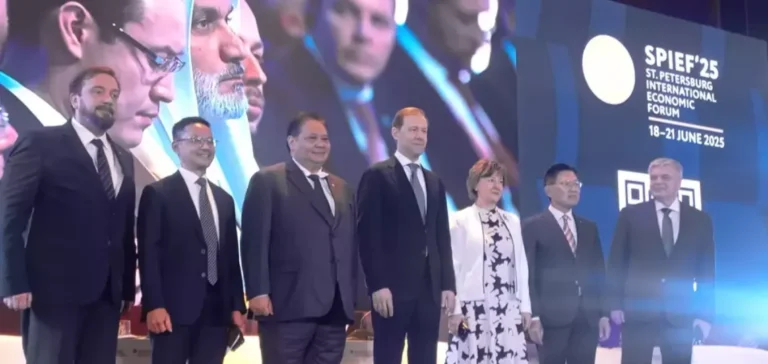Indonesia is preparing to conclude a free trade agreement with the Eurasian Economic Union (EAEU) before the end of the year, according to a statement from the Russian Foreign Minister. The announcement followed the adoption of a joint declaration marking the end of negotiations, signed during the St. Petersburg International Economic Forum.
The Eurasian Economic Union includes Russia, Kazakhstan, Belarus, Armenia and Kyrgyzstan. This agreement will provide a preferential framework for trade between the union’s members and Indonesia, particularly facilitating imports of raw materials and investments in strategic sectors.
Joint development in oil refining
Among the projects already underway is the construction of a refinery and petrochemical complex in East Java. The project is led by the Russian company Rosneft in partnership with Indonesian firm Pertamina. Located near the town of Tuban, the facility is designed to strengthen Indonesia’s energy independence and provide a regional outlet for Russian exports.
In parallel, negotiations are ongoing to allow Russian economic operators to participate in hydrocarbon exploration on the Indonesian continental shelf. This includes projects related to crude oil production, as well as the delivery of liquefied natural gas (LNG) across the archipelago.
Energy export outlook
Russia is seeking to diversify its export markets in Southeast Asia in a geopolitical context marked by restrictions on other traditional markets. The Russian Foreign Minister referred to other “promising ideas” for bilateral cooperation, without giving further details.
The agreement is expected to be signed in December in Moscow. According to Indonesia’s Ministry of Foreign Affairs, this step could mark a turning point for trade integration between Southeast Asia and the Eurasian space, with direct implications for hydrocarbon trade, infrastructure investment and regional supply chains.






















